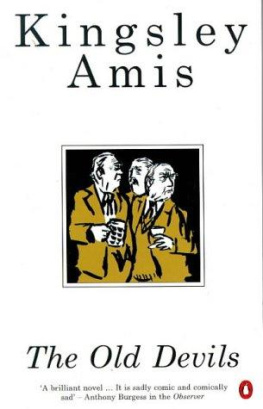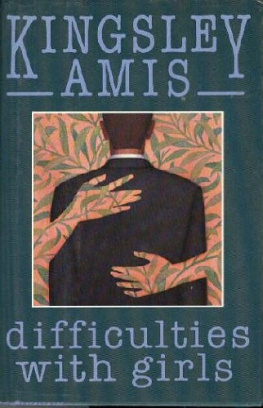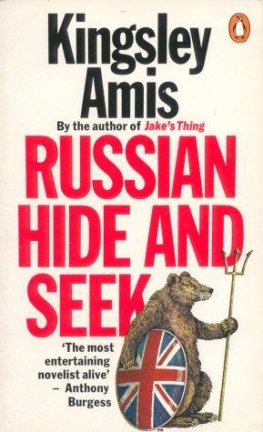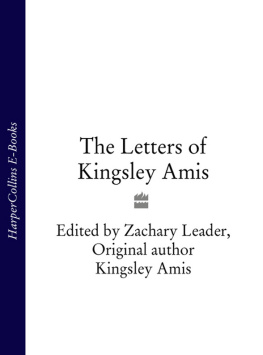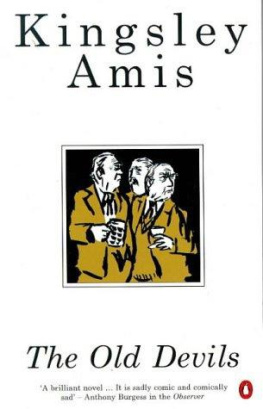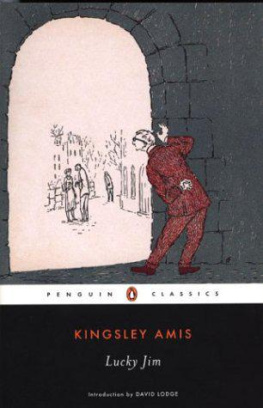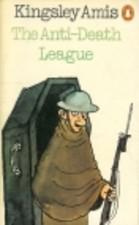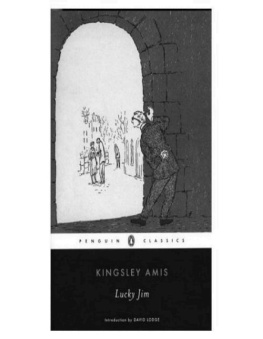Kingsley Amis - Spectrum V: A Fifth Science Fiction Anthology
Here you can read online Kingsley Amis - Spectrum V: A Fifth Science Fiction Anthology full text of the book (entire story) in english for free. Download pdf and epub, get meaning, cover and reviews about this ebook. year: 1969, publisher: Macmillan, genre: Detective and thriller. Description of the work, (preface) as well as reviews are available. Best literature library LitArk.com created for fans of good reading and offers a wide selection of genres:
Romance novel
Science fiction
Adventure
Detective
Science
History
Home and family
Prose
Art
Politics
Computer
Non-fiction
Religion
Business
Children
Humor
Choose a favorite category and find really read worthwhile books. Enjoy immersion in the world of imagination, feel the emotions of the characters or learn something new for yourself, make an fascinating discovery.

- Book:Spectrum V: A Fifth Science Fiction Anthology
- Author:
- Publisher:Macmillan
- Genre:
- Year:1969
- Rating:3 / 5
- Favourites:Add to favourites
- Your mark:
- 60
- 1
- 2
- 3
- 4
- 5
Spectrum V: A Fifth Science Fiction Anthology: summary, description and annotation
We offer to read an annotation, description, summary or preface (depends on what the author of the book "Spectrum V: A Fifth Science Fiction Anthology" wrote himself). If you haven't found the necessary information about the book — write in the comments, we will try to find it.
Spectrum V: A Fifth Science Fiction Anthology — read online for free the complete book (whole text) full work
Below is the text of the book, divided by pages. System saving the place of the last page read, allows you to conveniently read the book "Spectrum V: A Fifth Science Fiction Anthology" online for free, without having to search again every time where you left off. Put a bookmark, and you can go to the page where you finished reading at any time.
Font size:
Interval:
Bookmark:


* * * *
Spectrum 5
Ed By Kingsley Amis and
Robert Conquest
Scanned & Proofed By MadMaxAU
* * * *
CONTENTS
by F. L. Wallace
by Walter M. Miller
by Raymond F. Jones
by James H. Schmitz
by Tom Godwin
by Theodore L. Thomas
by Paul Ash
by Richard Ashby
* * * *
INTRODUCTION
In Spectrum IV we dispensed, for the first time, with an argumentative preface, but it is now clear that there is still plenty to argue about. The reviewer in the Times Literary Supplement, for instance, said we would certainly agree that science fiction stands or falls by style. Oh no we wouldnt. John Bowen in The Sunday Times wrote that in science fiction the characters do not develop, and are not examined in depth - offering this, seemingly, as a complaint, and a relevant one. Since confusion on these two heads persists, inside the genre as well as in commentary upon it, it may be worth briefly battering away at them yet again, particularly as we have noted an unfortunate tendency even in the excellent Magazine of Fantasy and Science Fiction, to demand of the works it reviews all the structures and depths and levels and characterizations and completenesses which, emerging from the English departments, have for so many decades now hung threateningly above ordinary fiction - without noticeably improving it. It would be a pity if science fiction were to become yet another well-policed province of todays or yesterdays literary ideologies.
Hostile critics will generally except Jules Verne from their strictures: indeed, it is a favourite sneer of theirs to lament the failure of his successors to advance beyond the point he reached a century ago. Recourse to any of his texts (in English translation, indeed, but it seems fair to assume that these are what most such critics will be speaking of) shows him to be a stylistic barbarian. His narrative passages are of the utmost baldness, with occasional relief in the shape of a banal apostrophe or rhetorical question; his dialogue is a tissue of ineptitudes. Furthermore, he often contrives his story-lines badly, showing little sense of climax; he has no interest in character (see below); he is not even scientifically accurate. And yet he continues to haunt the imagination, displaying that curious property - shared perhaps with Dickens? - of making his effect through the memory rather than by direct reading experience, so that each novel starts to improve in retrospect as soon as it is laid down. Vernes innumerable incapacities fade from the mind before the big mythic themes - the mysterious island, the wonderful submarine, the moon voyage - that engaged him. As C. S. Lewis pointed out, a myth works without the intervention of style.
A more modern example reinforces the point. The story Who Goes There? by Don A. Stuart - actually John W. Campbell, editor of Analog - has become, in its pre-World War II mode, a minor classic. (It was hideously travestied in the film The Thing from Another World.) It can hardly be that science fiction readers in the mass are just too stylistically insensitive to have noticed its obvious blemishes. Far more likely they, like ourselves, endured these for the sake of the brilliantly engineered main problem - briefly, that of determining which members of an isolated group of people have, and which have not, become possessed by a malignant symbiotic intelligence -together with its unexpected but logical solution. In this story, idea plays a part analogous to that of myth in Vernes novels.
We cannot, however, gloss over the objection that to endure bad style, however cheerfully, is less agreeable than to enjoy good; indeed, crossing the floor for a moment, we cannot help wishing that some science-fiction writers would stop to think about the problem occasionally, instead of assuming, or going on as if they assumed, that style is a highbrow affectation to do with semi-colons and long words. Even this, though, is less of a danger than the heresy, traceable probably to the example of that first great corrupter, Ray Bradbury, that style is a matter of whimsy, poeticality, fanciful and fancy imagery. Few writers in the field would fail to benefit from a study of Wellss romances.
To resume our former stance: George Orwell cogently remarks of Jack London that his stories are not well written, but are well told. The best thing, of course, is to have both virtues; but if we are to give up one or the other, good telling without good writing seems indisputably preferable to good writing without good telling. In particular, it seems reasonable to decide that, while more stylists of the calibre of J. G. Ballard or Algis Budrys would be heartily welcome, stylistic distinction is neither a necessary nor a characteristic virtue of science fiction. Something humbler is more appropriate, the efficient prose of a Defoe or, not to set our sights too high, a Captain Slocombe. One might say the same of other kinds of genre fiction, the detective story, perhaps the espionage thriller; while, rounding off this part of the argument with a brief counter-attack, one might say of much fiction of the main stream that concentration on style often goes with a thinning of content, and that Henry James chewed more than he bit off.
A concern for style goes with a certain kind of concern for character. The novel of style is also the novel of human relations, which is another name for the traditional novel of the last three hundred years, and a handy short description of what science fiction is not. The point was clear at the outset - taking the same outset as before. Vernes characters do not develop, and are not examined at all. The standard is set by the trio of Five Weeks in a Balloon: more or less eccentric, ludicrously resourceful scientist, brave and honourable man of action (supposedly), semi-comic but loyal servant-type. They reappear almost unchanged in 20,000 Leagues under the Sea, with the addition of Captain Nemo, the foe of mankind. Nemo is another of Vernes mythic creations, not a character in the sense that Chaucers Wife of Bath or Falstaff are, but a figure, like Sir Galahad or Prospero: the incarnation of mysterious power in the scientific age. He has no substance.
As before, the sympathetic readers ability to put up with such presumed deficiencies does not, in itself, let the writer off the task of creating characters who cannot be exhaustively described in a single phrase. But whereas stylistic merit, as we have argued, is not vital in the field of science fiction, characterization of the traditional sort would positively weaken and deflect most of the themes that typify that field. The novelist of the main stream is expected to investigate his characters as profoundly as his equipment allows, because his business is with the subtle network of relationships connecting them. The science-fiction writer, however, takes for his subject, as Edmund Crispin has noted, the relationship between humanity on the one side and a thing on the other, understanding by a thing a wide class of phenomena: plague, invention, immortality, alien biology, or even Thing. Here several illustrations are necessary.
In The War of the Worlds, the thing is an immensely destructive interplanetary invasion force, the theme what happens in time of unprecedented national - Wellss interest here does not extend to global - disaster. Humanity is represented chiefly by the hero-narrator, an ordinary decent Englishman of his period. If he were more or less than this he would not do. It is his function to incarnate the average reaction to the disaster, to embody what is intended by phrases like the nation responded magnificently - or contemptibly. A protagonist who was not ordinary, or only superficially ordinary, or finally and unexpectedly merely ordinary, or not really decent, or shiningly and supernaturally decent, etc., etc. (one or more of which he would have had to be in any corresponding novel of the main stream), would not have suited Wellss purpose, however interesting an alternative purpose might or might not have been.
Next pageFont size:
Interval:
Bookmark:
Similar books «Spectrum V: A Fifth Science Fiction Anthology»
Look at similar books to Spectrum V: A Fifth Science Fiction Anthology. We have selected literature similar in name and meaning in the hope of providing readers with more options to find new, interesting, not yet read works.
Discussion, reviews of the book Spectrum V: A Fifth Science Fiction Anthology and just readers' own opinions. Leave your comments, write what you think about the work, its meaning or the main characters. Specify what exactly you liked and what you didn't like, and why you think so.




